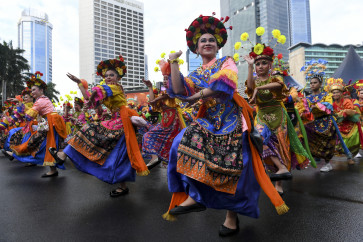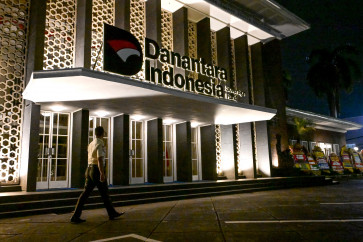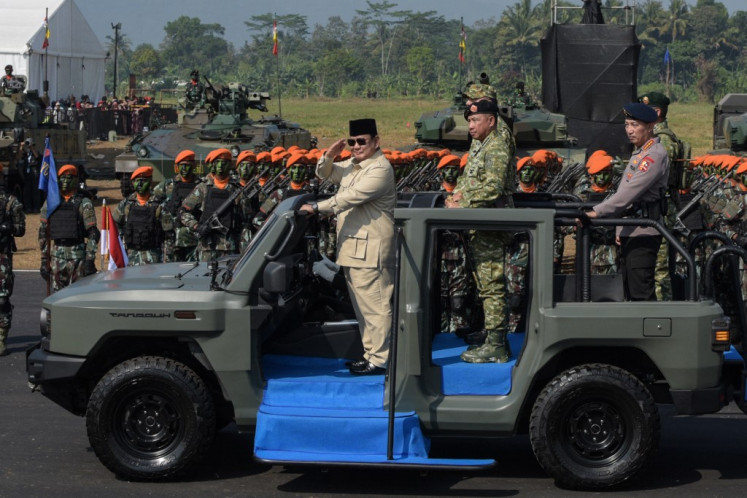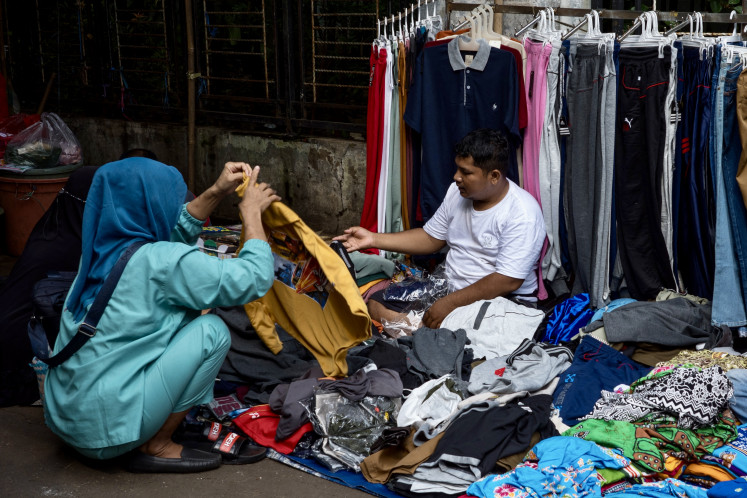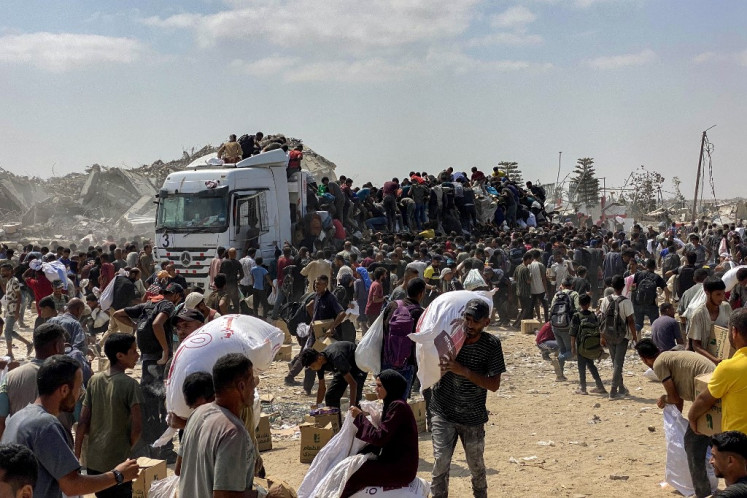Popular Reads
Top Results
Can't find what you're looking for?
View all search resultsPopular Reads
Top Results
Can't find what you're looking for?
View all search resultsCalming the seas between ASEAN and China
Demonstrations in Hanoi against China ended when the Vietnamese government finally acted on July 10 to round up protesters
Change text size
Gift Premium Articles
to Anyone
D
emonstrations in Hanoi against China ended when the Vietnamese government finally acted on July 10 to round up protesters.
The rare public protests, held on weekends for over a month in front of the Chinese Embassy, employed nationalistic slogans and symbols. Thought to have been officially tolerated, or even encouraged, they started soon after China’s navy had turned back a Vietnamese oil-drilling research boat in a disputed area of the South China Seas.
This sets a potentially tense context to the ASEAN Regional Forum (ARF), soon to be held in Bali, Indonesia. ASEAN Secretary-General Surin Pitsuwan hopes the meeting can bring the ASEAN foreign ministers and all major regional powers, including China and the US, to have a constructive dialogue on the issue and the differing claims.
Discussion at the ARF is needed as the issue goes beyond bilateral China-Vietnam ties. Similar controversies have erupted between China and the Philippines, following Chinese moves to build an exploratory rig near the Palawan waters.
Filipinos abroad took to the streets in New York City, San Francisco, Los Angeles and Chicago, where they have large expatriate communities, to protest against what they called “Chinese bullying”.
Potentially resource-rich areas around the Spratly and Paracel Island groups are also claimed by Malaysia, Brunei and Taiwan.
The US has gotten into the act. Chairman of the Joint Chiefs of Staff, Admiral Mike Mullen, started his official visit to China this week with a warning that incidents in the disputed waters of the South China Sea could escalate into conflict. The Admiral pledged to maintain the US military presence in Asia.
It was the US, after all, who gave voice to the escalating concerns, when State Secretary Hillary Clinton raised the issue at last year’s ARF. Since then what has happened is widely regarded as damaging Chinese diplomacy in the region after a decade of increasing friendship with its neighbors. Now, however, the issue is also emerging as a test for ASEAN.
The group has emerged as the most acceptable host in the region, and has gained a central position from being able to convene dialogue among the rising powers.
This is commendable considering that, aside from Indonesia, the nine other ASEAN members are middle to smaller states with neither economic heft nor military power.
Its role emerged because ASEAN is a trusted host, relative to others, and because it has developed
norms for peaceful coexistence and increased cooperation among neighbors.
These two characteristics cannot be automatically commanded in dealing with the South China Sea.
With Vietnam and the Philippines loudly protesting the issue, and claims by two other ASEAN members, the group will not automatically be seen as neutral. With the Obama administration having held two Summits with ASEAN and coming to the East Asian Summit at year’s end, it would be too easy for Beijing to sense some in the group are hoping to lean on America.
ASEAN cannot immediately solve the complex and intricate claims over potentially important resources. Indeed, the members with claims in the disputed area cannot be asked to put aside their interests. But there are at least three things ASEAN can do to prevent the differing claims from escalating to conflict.
First, ASEAN needs to remind Vietnam and the Philippines that the group as a whole cannot and should not be expected to blindly follow their national interests. Indeed, it would be helpful if nationalism and flag waving were toned down, rather than allowed and even encouraged to demonize China.
Second, ASEAN as a group has to set the context of the overall relationship with China. Economic ties have grown deeper and wider and are projected to grow still further. With the China-ASEAN Free Trade Agreement, total trade value should soon go beyond US$300 billion per year.
Two-way investment will also grow, with Beijing encouraging major Chinese enterprises to invest in ASEAN countries and look beyond mining and resources, at manufacturing and energy.
Third, ASEAN as a group must think not about only balancing power with power, even as they reach out to the US. While the US military presence has been a factor for stability, the urgent need is to develop norms and habits for peaceful cooperation.
ASEAN, with neither capacity nor ambition to military assertion, must develop itself as a normative power.
The South China Sea, and the overarching relationships between the group and China, will be a place to grow and test this potential for ASEAN.
Given the relative shift of growth and opportunity from the West, ties with China will grow more and more important. Given the rise of China, mental attitudes have to adjust to avoid the poles of fear and subservience.
The China-ASEAN relationship is too important and complex to be held captive to any single issue or the narrow interests of any one state.
Where differences exist, dialogue should not be stifled. But it is a conversation best guided by calm, context and norms, if not a shouting or potentially shooting contest may result.
ASEAN at the upcoming ARF must make efforts to calm the seas before anyone can usefully debate how to divide them.
The writer is chairman of the Singapore Institute of International Affairs and the author of Asia Alone: The Dangerous Post Crisis Divide from America. The SIIA will convene the ASEAN and Asia Forum on Aug. 4 in Singapore. The forum will bring together leading thinkers in the fields of environment studies, politics and trade for a comprehensive discussion on the world’s current energy and economic challenges



